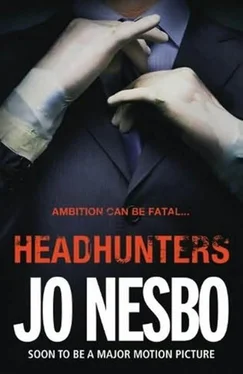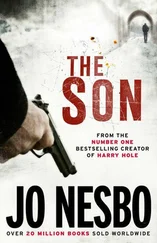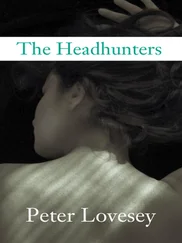‘Erling Skjalgssons gate,’ I sighed.
Diana and I had discussed the location long before she had chosen the rooms. I had been keen to make sure it lay on the Skillebekk-Frogner axis since that is where you find the clients with the means to pay and other galleries of a certain niveau . To be located outside the cluster can mean an early death for a new gallery. Diana’s ideal had been the Serpentine Gallery in Hyde Park in London, and she had been determined that the gallery should not face onto one of the busy thoroughfares, like Bygdøy allé or Gamle Drammensvei, but should be situated in a quiet street where there was room for contemplation. Furthermore, a set-back location emphasised exclusivity, signalled that it was for initiates, connoisseurs.
I had expressed agreement, thinking that perhaps the rent would not have to be ruinous after all.
Until she had added that in that case she would be able to spend money on extra square metres for a salon where there could be receptions after private views. In fact, she had already looked at a vacant site in Erling Skjalgssons gate, which was perfect, the best of the best. I was the one who had come up with the name: Galleri E. E for Erling Skjalgssons gate. It was, moreover, the same formulation as the best run gallery in town, Galleri K, and hopefully showed that we were targeting the affluent, the quality-conscious and the cool.
I had not argued that the pronunciation in Norwegian made it sound like the gallery. Diana didn’t like that kind of cheap gimmick.
The lease had been signed, the extensive decoration work was under way and our financial ruin secured.
When the taxi pulled up outside the gallery I noticed more Jaguars and Lexuses parked up and down the pavement than usual. A good omen, although of course it could have been because of a reception in one of the surrounding embassies or that Celina Midelfart was having a party in her GDR fortress.
Bass-dominated eighties ambient music poured out through the speaker system at a pleasantly low volume as I entered the rooms. It would be followed by the Goldberg Variations. I had burned the CD for Diana.
It was already half full despite it being only half past eight. A good sign – usually Galleri E clientele didn’t appear before half past nine. Diana had explained to me that packed private views were seen as vulgar; half-full ones accentuated the exclusivity. My experience was now, however, that the more people there were, the more pictures would be sold. I nodded to the left and right without anyone reciprocating and headed for the mobile bar. Diana’s permanent bartender, Nick, passed me a glass of champagne.
‘Expensive?’ I asked, tasting the bitter bubbles.
‘Six hundred,’ Nick said.
‘Better sell a few pictures,’ I said. ‘Who’s the artist?’
‘Atle Nørum.’
‘I know his name, Nick, just not what he looks like.’
‘Over there.’ Nick angled his big ebony-black head to the right. ‘Next to your wife.’
I noted that the artist was a hunk of a man with a beard but that was all. Because she was there.
A pair of white leather trousers clung to long, slim legs, making her seem even taller than she was. Her hair hung down on either side of her fringe, which had been cut straight, and this perpendicular frame heightened the impression of Japanese comic-strip art. Under the spot lighting, the loose silk blouse shone almost bluish-white on her narrow, muscular shoulders and breasts, which in profile resembled two perfectly formed waves. My God, she would really have set off the diamond earrings!
Reluctantly, my gaze left her and swept around the rest of the room. Those invited stood making polite conversation in front of the pictures. They were the usual suspects. Rich, successful financiers (suit with tie) and celebrities of the right sort (suit with designer T-shirt), the ones who had actually achieved something. The women (designer clothes) were actresses, writers or politicians. And then there was, of course, the flock of young, so-called promising and allegedly poor, rebellious artists (jeans with holes, T-shirts with slogans) whom in my own mind I termed QPR. When, at the beginning, I had wrinkled my nose up at these elements on the guest list, Diana had argued that we needed ‘some spice’, some life, something a bit more dangerous than art patrons, calculating investors and those who came just to have their public images massaged. Fair enough, but I knew that the scum were here because they had asked Diana nicely for an invitation. And even though Diana knew that they were here angling for buyers of their own works, it was well documented that Diana could never say no if she was asked for a favour. I noticed several people – mostly men – occasionally casting furtive glances in Diana’s direction. Be my guest. She was finer than anyone they would ever get. This was not just an assumption, but an unshakeable logical fact as she was the finest of the finest. And she was mine. Just how unshakeable was something with which I tried not to torment myself. For the time being I found peace of mind thinking that she seemed to be permanently blind.
I counted how many men there were wearing ties. As a rule, they were the ones who bought. The current square-metre price for Nørum’s works lay at around fifty thousand. With fifty-five per cent commission to the gallery you didn’t need many sales before this would become a lucrative evening. To put it another way: it had better be; Nørums were few and far between.
People were streaming in through the doors now, and I had to move out of the way to let them get to the tray of champagne glasses.
I ambled towards my wife and Nørum to tell him what a grovelling admirer I was. An exaggeration, of course, but not a bare-faced lie; the guy was good, no doubt about that. But as I was going to stretch out my hand, the artist was collared by a sputum-spouting man he obviously knew and dragged off to a giggling woman in apparent dire need of the toilet.
‘Looks good,’ I said, standing next to Diana.
‘Hi, darling.’ She smiled down at me, then motioned to the twin girls that they should do another round with the finger food. Sushi was out, but I had suggested the new Algerian catering service, French-inspired North African, very hot. In all senses. But I could see that she had ordered the food from Bagatelle again. It was good, too, my goodness. And three times as expensive.
‘Good news, my love,’ she said, slipping a hand into mine. ‘Do you remember the job for that firm in Horten you told me about?’
‘Pathfinder. What about it?’
‘I’ve found the perfect candidate.’
I observed her with mild surprise. As a headhunter, from time to time naturally I used Diana’s customer portfolio and circle of acquaintances, which counted many business honchos among its number, without any pangs of conscience; after all, it was me who was financing this drain on the budget. What was unusual was that Diana had herself come up with a specific candidate for a specific job.
Diana took the underside of my arm, leaned closer and whispered: ‘His name is Clas Greve. Dutch father, Norwegian mother. Or the other way round. Whatever. He stopped working three months ago and has just moved to Norway to do up a house he’s inherited. He was the CEO of one of Europe’s biggest GPS technology companies in Rotterdam. He was a co-owner until they were bought up by the Americans this spring.’
‘Rotterdam,’ I said, sipping some champagne. ‘What’s the company’s name?’
‘HOTE.’
I almost choked on the champagne. ‘HOTE? Are you sure?’
‘Pretty sure.’
‘Have you got the guy’s number?’
‘No.’
I groaned. HOTE. Pathfinder had named HOTE their model company in Europe. Just as Pathfinder was now, HOTE had been a small high-tech business specialising in delivering GPS technology to the defence industry in Europe. An ex-CEO from there would be absolutely ideal. And it was urgent. All recruitment agencies say that they only take assignments where they have exclusive rights because it is a prerequisite for serious, systematic work. But if the carrot is big and orange enough, when the gross annual salary begins to approach seven figures, everyone modifies their principles. And the top job with Pathfinder was extremely big, extremely orange and extremely competitive. The assignment had been given to three agencies: Alfa, ISCO and Korn/Ferry International. Three of the best. That was why this was not solely about money. Whenever we work on a no win, no fee basis, we first get a one-off fee to cover costs and then a fee if the candidate we present fulfils the needs we have agreed with the client. For us to get the real payout, however, the client has to appoint the person we recommend. OK by me, but what this was really, really about was simple: winning. Being king of the heap. Platform shoes.
Читать дальше












